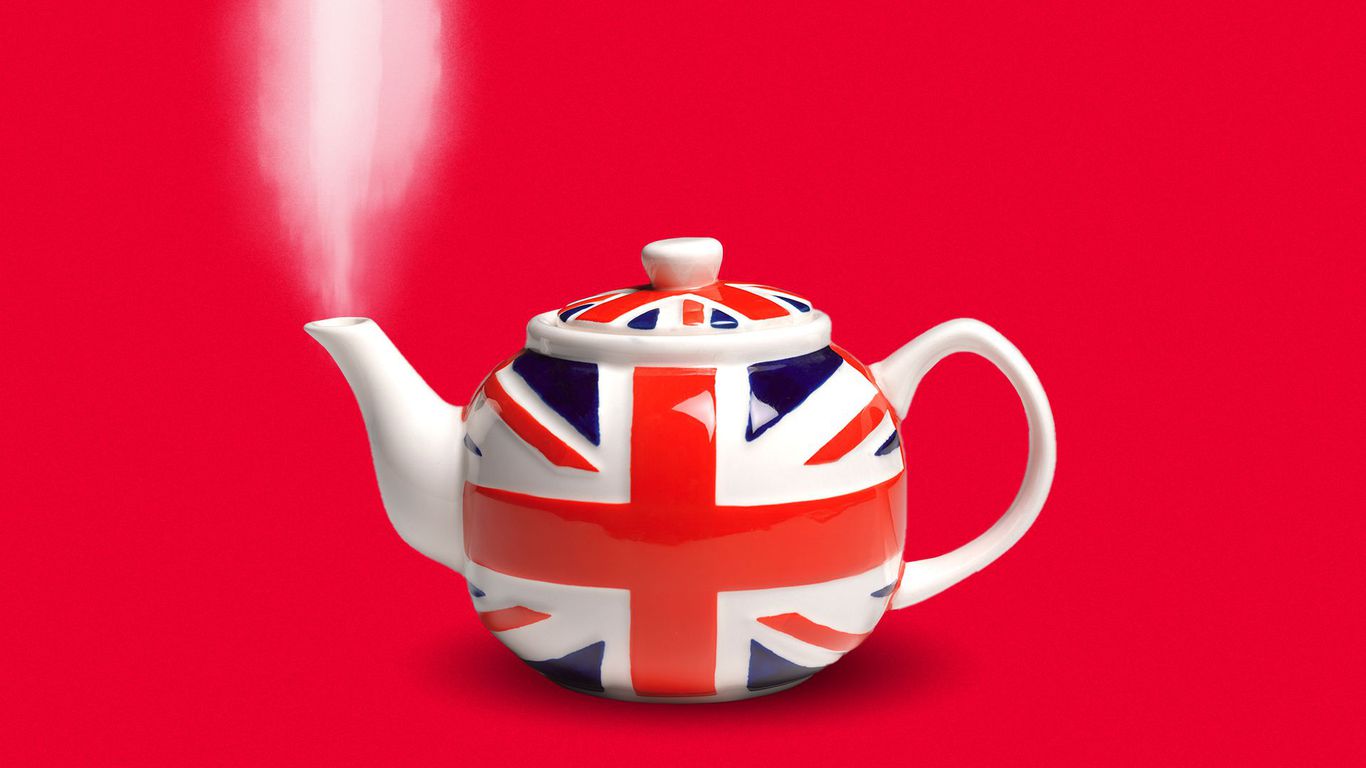
British naval vessels dispatched to break a French blockade, Scottish nationalists attempting to break away from the U.K., and working class voters in the northeast breaking for the Conservatives after voting Labour for six decades.
Why it matters: That was just one day in the topsy turvy reality of post-Brexit Britain.
- Driving the news: Thursday was the U.K.’s first major election day since 2019, with ballots cast for the Scottish and Welsh parliaments and local governments across England.
Polls have just closed in what Scottish First Minister Nicola Sturgeon has called the “most important election in our lifetime.”
- Sturgeon’s Scottish National Party is certain to win, but an outright majority would strengthen her calls for a re-run of the 2014 independence referendum, in which Scots voted 55% to 45% to stay within the U.K.
- Sentiment has shifted since the 2016 Brexit vote, which Scots overwhelmingly opposed. The latest polls suggest a new referendum would be a close run affair, with the pro-independence camp promising a return to the EU if successful.
- What to watch: Prime Minister Boris Johnson has vowed to block a second referendum, but if Sturgeon does win a majority, he may feel the need to change his answer from “never” to “not now,” James Johnson, a former Downing Street pollster, tells Axios.
80 miles south of the Scottish border, in Hartlepool, Johnson’s Conservatives are poised to pick up a seat that has been held by Labour since 1964.
- A brick in the “red wall” of Labour’s northern heartlands, Hartlepool voted for Brexit by a 70% to 30% margin.
- Johnson re-drew Britain’s political map by picking up dozens of such seats in the 2019 “Brexit election.” But losing Hartlepool in his first major electoral test would be a painful blow for new Labour leader Keir Starmer.
- The Conservatives’ strong position coming into the election indicates “this realignment, the Boris effect, is really about something much deeper than Brexit,” says Johnson, the pollster. “It’s about a values divide,” with Labour now seen as the metropolitan party.
- The big picture: Boris Johnson has bounced from crisis to crisis over the past year, but by sprinting ahead of the EU on vaccinations, the prime minister bolstered his own popularity and the Brexit cause.
The Brexit aftermath has been less kind to Arlene Foster, who resigned last week as First Minister of Northern Ireland.
- Her Democratic Unionist Party backed Brexit but felt betrayed when Johnson struck a deal that put a customs border between Northern Ireland and the rest of the U.K.
- Brexit is among the factors driving up tensions in Northern Ireland, with violent scenes from Belfast last month evoking the Troubles era.
One scene few would have predicted is a confrontation in the English Channel between two stalwart allies.
- How it happened: French fishermen protesting post-Brexit limitations on their access to the waters around Jersey blocked the island’s main port this morning.
- London then dispatched two naval vessels to Jersey, a U.K. territory. The French government, which had threatened to cut power to the island over what it sees as illegal fishing restrictions, responded with two patrol boats of its own.
Between the lines: Fishing rights took on a major symbolic status during the Brexit fight. Johnson has also long vowed that post-Brexit Britain would flex its muscles internationally.
- But while the Daily Mail tabloid declared, “WE’RE READY FOR WAR,” it didn’t come to that today.
- By evening, the boats had all retreated.
